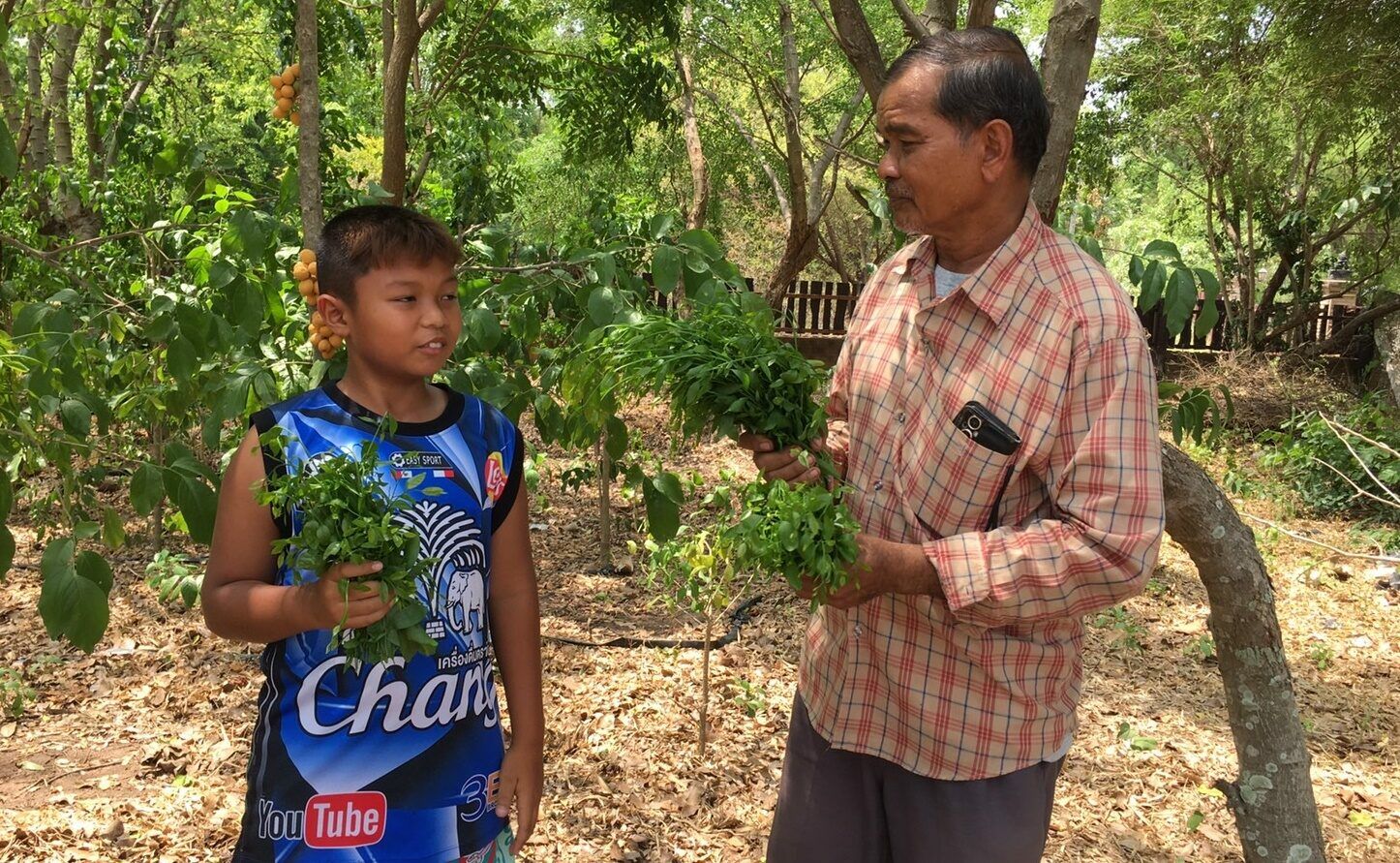Nakhon Ratchasima farmer earns big with sweetleaf bush

In a remarkable agricultural venture in Nakhon Ratchasima, a Thai farmer transformed a 1-acre plot of land into a thriving sweetleaf bush plantation, with a yield that commands an impressive price of 200 baht per kilogramme.
The 63 year old farmer, Aatthakorn Kaewmorakot, resides in Chan Kho, Mu 3, Rang Ka Yai Sub-district, Phimai District, Nakhon Ratchasima Province, and is currently the village head of Wat Ban Chan Kho. He ventured into cultivating the sweetleaf bush (Sauropus androgynus) in his backyard.
Starting with 1,000 plants, he adopted a drip irrigation system and provided shade for the sweet leaf bushes with tamarind trees. Within just two years, he successfully harvested and sold the produce.
The key to cultivating the sweet leaf bush lies in understanding its preference for shade over direct sunlight. Aatthakorn revealed that planting shade trees like tamarind, spaced about 3 meters apart, is crucial. Alternatively, covering the plants with baskets can also provide the necessary shade.
Once the sweet leaf bushes reach one year old, the baskets can be removed. The plant can be grown from seeds or stem cuttings, with seeds taking approximately two to three years to produce harvestable crops, while stem cuttings shorten this period to six months and one year.
The current market price for sweet leaf bush stands at 200 baht per kilogramme, allowing Aatthakorn to earn an average of 10,000 to 15,000 baht per month, reported KhaoSod.
This venture has proven to be a sustainable source of income for his family, with just a single planting yielding several years’ worth of harvestable crops.
In related news, a timely stroke of luck has befallen a widowed farmer in Nakhon Ratchasima as he won a staggering 12 million baht in the lottery, with plans to generously donate a boat to a local rowing club because of his grandchild’s national team success.
In other news, the revered Nonthaburi durian, a cherished variety of Thailand’s king of fruits, has witnessed a drastic production decline to just 10% compared to the previous year, plunging growers into a state of crisis.
Latest Thailand News
Follow The Thaiger on Google News:


























